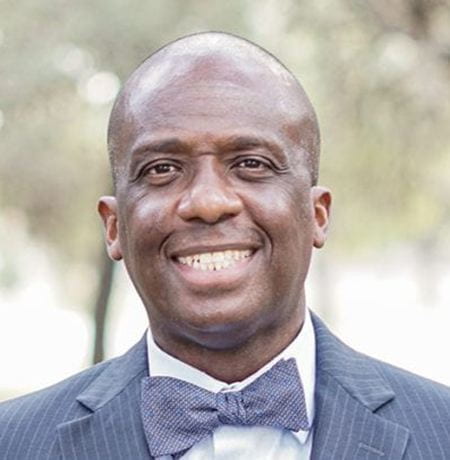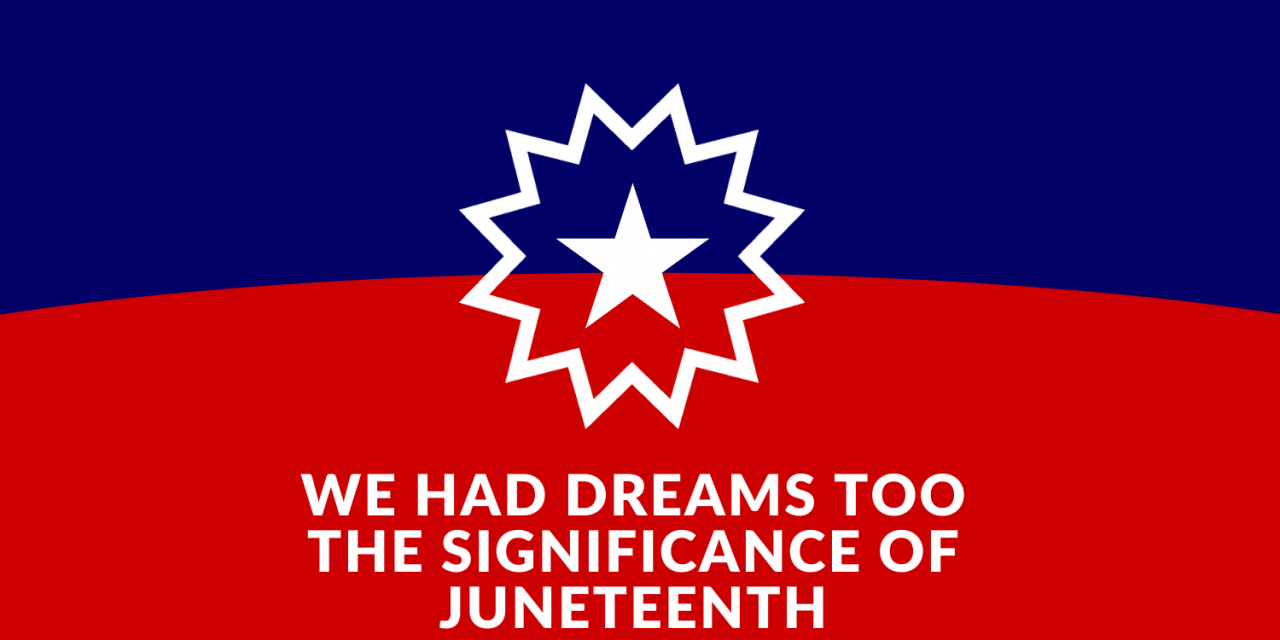(Ver abajo para Español)
We had dreams too. These words were spoken by mother in 1994 when we were visiting the sharecropper plantation that she grew up on in Belzoni, Mississippi, from 1946 until when she left to go north in 1966. In these words, we find both the hope and the disappointment of Juneteenth – when in 1865, slaves in Galveston, Texas were notified of the Emancipation Proclamation, issued two years earlier on January 1, 1863. For the newly freed slaves, this news was more about their progeny than about them. They dreamed of a world where black children could acquire an education and take their rightful place at the table of American citizenship – a world where their children could achieve anything and do anything. As we mark this 156th Juneteenth Day, let us acknowledge all that we have achieved, and reflect on the work that still needs to be done.
The generation of black people who came of age during my mother and father’s era were peers of Emmett Till – the last generation to live under Jim Crow Laws in this nation. They were born too soon to benefit fully from the Civil Rights Movement but trusted that succeeding generations would. This is the power in remembering Juneteenth; it provides needed perspective. My generation (I was born in 1967) has benefited from living in a nation that started the movement to remove barriers to our success based solely on skin color. The work is not complete, but I often think of how my life would have been impacted if the Civil Rights Movement had not succeeded. The career opportunities that I have had would not have been open to me. The places that I go, without questioning if I belong, would not be available. The contributions that I make in my workplace and community would be truncated without the removal of Jim Crow laws. We can never take for granted the sacrifice of those in my parents’ generation, for they had dreams too.
My mother and father’s proudest thing that they could say when I was a child was that my kids go to school. Educating her children was vital for my mother, who grew up on the sharecropper’s plantation and, consequently, had her education frequently interrupted due to having to work in the cotton fields. I was the first of her children to be born off the plantation. This fact, alone, was emblematic of the promise of my generation. It has been 27 years since my mother and I walked the old plantation, but not one day goes by when I do not think about her and all the previous generations of black people who fought, died, and believed in a brighter day.
Because of them, I can write this as one of only two black Chiefs in the Round Rock Independent School District, the 21st largest public school district in the state of Texas. My goal is to ensure that all those coming after me will have their brighter day. This is how we honor Juneteenth, and this is how we honor the greatness of America – we make it better, we do not dismantle it. The former takes courage; the latter lacks perspective.

DeWayne Street
Chief Equity Officer
Nosotros también teníamos sueños – El significado de Juneteenth
Nosotros también teníamos sueños. Estas palabras las pronunció mi madre en 1994 cuando visitamos la plantación de aparceros en la que creció en Belzoni, Mississippi, desde 1946 hasta que se fue al norte en 1966. En estas palabras, encontramos tanto la esperanza como la decepción de Juneteenth – cuando en 1865, los esclavos en Galveston, Texas fueron notificados de la Proclamación de Emancipación, emitida dos años antes, el 1 de enero de 1863. Para los esclavos recién liberados, esta noticia se refería más a su progenie que a ellos. Soñaban con un mundo donde los niños negros pudieran adquirir una educación y ocupar el lugar que les corresponde en la mesa de la ciudadanía estadounidense, un mundo donde sus hijos pudieran logra cualquier cosa y hacer cualquier cosa. Al conmemorar este 156º Día de Juneteenth, reconozcamos todo lo que hemos logrado y reflexionemos sobre el trabajo que aún queda por hacer.
La generación de negros que llegó a la mayoría de edad durante la época de mi madre y mi padre fueron compañeros de Emmett Till, la última generación que vivió bajo las leyes de Jim Crow en esta nación. Nacieron demasiado pronto para beneficiarse plenamente del Movimiento por los Derechos Civiles, pero confiaron en que las generaciones siguientes lo harían. Este es el poder de recordar a Juneteenth; proporciona la perspectiva necesaria. Mi generación (yo nací en 1967) se ha beneficiado de vivir en una nación que inició el movimiento para eliminar las barreras a nuestro éxito basándose únicamente en el color de la piel. El trabajo no está completo, pero a menudo pienso en cómo se habría visto afectada mi vida si el Movimiento de Derechos Civiles no hubiera tenido éxito. Las oportunidades profesionales que he tenido no se me hubieran abierto. Los lugares a los que voy, sin cuestionar si pertenezco, no estarían disponibles. Las contribuciones que hago en mi lugar de trabajo y en mi comunidad se verían truncadas sin la eliminación de las leyes de Jim Crow. Nunca podemos dar por sentado el sacrificio de los miembros de la generación de mis padres, porque ellos también tenían sueños.
Lo más orgulloso que podían decir mi madre y mi padre cuando yo era un niño, fue “mis hijos van a la escuela.” Educar a sus hijos fue vital para mi madre, que creció en una plantación de aparceros y, por consecuencia, su educación se vio interrumpida con frecuencia por tener que trabajar en los campos de algodón. Yo fui el primero de sus hijos que nació fuera de la plantación. Este hecho, por sí solo, fue emblemático de la promesa de mi generación. Han pasado 27 años desde que mi madre y yo caminamos por la vieja plantación, pero no pasa un día sin que piense en ella y en todas las generaciones anteriores de negros, que lucharon, murieron y creyeron en un día más brillante.
Gracias a ellos, puedo escribir esto como uno de los dos únicos directores negros del Distrito Escolar Independiente de Round Rock, el 21vo distrito escolar público más grande del estado de Texas. Mi objetivo es asegurar que todos los que vengan después de mí tengan su día más brillante. Así es como honramos el Día de Juneteenth, y así es como honramos la grandeza de Estados Unidos: lo mejoramos, no lo desmantelamos. Lo primero requiere valor; lo segundo carece de perspectiva.

DeWayne Street
Director de Equidad

